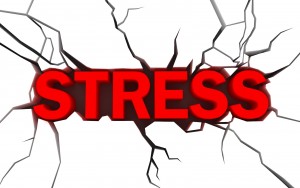 Long-term exposure to stress can lead to serious health issues by raising your blood pressure, increasing your risk of having a heart attack, and suppressing your immune system. Ignoring the symptoms of stress can lead to anxiety and depression.
Long-term exposure to stress can lead to serious health issues by raising your blood pressure, increasing your risk of having a heart attack, and suppressing your immune system. Ignoring the symptoms of stress can lead to anxiety and depression.
Physical symptoms from prolonged stress can range from headaches, upset stomach, high blood pressure, chest pains, difficulty breathing and trouble sleeping.
Everyone deals with stress differently; the import factor is to find healthy ways to deal with stress that work for you.
#1 most effective way to deal with stress – RELAX
Deep Breathing | Deliberate and mindful breathing will help your muscles to relax and make you feel less tense.
Massage | Booking even a short 30 minute massage focusing on the muscles in the back of your neck and upper back will help you feel less tense.
Time Out | Stepping away from the situation, even for a few minutes will have a beneficial effect on your mood. Going for a walk around the block can go a long way to decreasing your stress.
Grateful List | Make a mental list of 5 things you are thankful for. This will remove your focus from the stressful situation and will allow you to gain quick perspective of your life.
#2 Take care of your body
Sleep | 7 to 9 hours will help your body recover
Eat healthy | Eat fruits, vegetables, proteins, and whole grains. Don’t fall into bad habits of junk food, and limit your caffeine or high-sugar snack foods.
Exercise | Getting physical activity helps relax your tense muscles and improve your mood.
Avoid | alcohol, drugs, smoking
# 3 Involve your Health Care Practitioners
Be proactive – don’t wait till you can no longer cope. Make sure that you talk to your health care practitioner, and work together to find a treatment plan that works for you.
Book a massage – Clinical studies show that even a single 1 ½ -hour session can significantly lower heart rate, cortisol levels and insulin levels-all of which help reduce stress through massage therapy. On-going massage therapy can improve overall physical and mental performance.
Book an acupuncture session – The body secretes hormones into the bloodstream as a reaction to stress. Acupuncture can block the chronic, stress-induced elevations of these hormones leaving you with a sense of calm & relaxation.
Book a Chiropractic session – One of the effects of chronic stress is prolonged muscle tension. This muscle tension can leads to a misalignment of the spine and the other joints in the body. These misalignments can cause common conditions such as; back pain, neck pain, and headaches. Chiropractic adjustments reduce nerve irritation, improve circulation, and release muscle tension.
Book a Physiotherapy session – can assist decease stress levels through manual therapy. Manual therapy involves manipulation of muscles and tissues in the body. This technique is used to reduce muscle tension, improve circulation, and carry fresh oxygen to tissues in the body.



